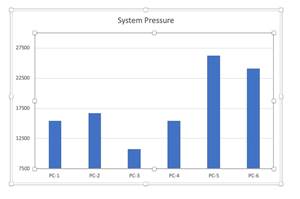Family-Run Molder and Mold Maker Prospers for More Than 50 Years
How does a small, family-owned custom molder remain competitive for 53 years without multiple plants, offshore clients, a specialized market niche, or unique leading-edge technology?
How does a small, family-owned custom molder remain competitive for 53 years without multiple plants, offshore clients, a specialized market niche, or unique leading-edge technology? Basilius Inc. in Toledo, a full-service parts supplier with 13 presses, 35 employees, and yearly revenues between $5 million and $10 million, does it by running two complementary ┤¾¤¾┤½├¢es: injection molding and mold making. “That is something many companies of our size don’t do,” says president Scott Basilius.
To remain competitive with domestic and overseas firms, he says, “We run lean and don’t have a lot of extra people, so everyone wears a lot of hats.” Press operators may also be trained in maintenance or other duties.
“Hands-on ownership” is another company cornerstone. Besides Scott Basilius, family members in the ┤¾¤¾┤½├¢ include cousins Doug Keiser, v.p. of tooling, and Dave Keiser, v.p. of administration. These executives stay close to operations on the plant floor to keep on the lookout for waste and to respond quickly to problems.
They also stay close to their customer base, which is nearly all domestic and mostly within a 250-mile radius. Their view of ┤¾¤¾┤½├¢ is, “It’s personal.” Says Scott Basilius, “We try to associate a face with a name and stay in contact. That’s better than dealing with an offshore enterprise where you may be a half-day ahead or behind each other time-wise.”
“Full service” is another Basilius principle. Over the years, the firm developed into a one-stop shop for parts design, development, prototyping, and commercial production.
Started in a garage
Basilius Inc. started in 1952 as a mold shop dedicated to just one customer, Peerless Plastics. “We started in the grinding ┤¾¤¾┤½├¢. My dad went to mold school then set up a garage shop near Peerless Plastics to build tooling exclusively for them,” says Scott Basilius. When he entered the family ┤¾¤¾┤½├¢ in the 1970s he sought new customers for tooling projects. Peerless closed its doors in 1995, but Basilius had a comfortable portfolio of clients by then and moved into the Peerless building.
Basilius was doing some small precision-parts molding as far back as 1962. The combination of tooling expertise and molding gives the company an advantage in the marketplace. “Having the tool making and the molding under one roof lowers the cost for the client,” says Scott Basilius. “Also, we can respond much faster if there is a problem with the tool. Knowing our capabilities and what we do well, we can choose the projects that suit our strengths and turn around a mold or molding project quickly.”
Nearly 80% of the molds made by Basilius go to outside companies rather than its own molding operations. It is not unusual for Basilius to make molds for competing molders.
Basilius makes about 90% of the molds it uses. It typically builds tools for presses up to 500 tons. It makes molds from one to 16 cavities and has 14 toolmakers on staff.
Basilius’ 13 injection presses range from 55 to 330 tons. They include four new Boy machines purchased to enable more precision molding of smaller parts. The company also uses a Roboshot electric machine from Cincinnati Milacron and older machines from Van Dorn (now Demag Plastics Group).
Basilius’ molding ┤¾¤¾┤½├¢ targets small medical, automotive, and general-purpose parts for sports and recreation, such as a part for an archery bow sight and goggles for use in tanning booths. The firm also molds automotive under-hood parts such as attachment clips and a hydraulic motor housing.
Keeping it simple
Basilius likes to keep its molding practices simple, typically sticking to single-material, single-shot applications, although it can produce two-material parts using two presses and a transfer robot between them. Certain presses are dedicated to certain materials, which helps minimize contamination issues or color bleeding from job to job.
On the other hand, the firm runs Moldflow simulations on all parts to identify potential problem areas. For post-mold assembly, Basilius developed what it believes is a unique automated method to apply double-faced adhesive tape to molded parts so as to reduce time and labor. The plant is certified to ISO-9001 and QS-9000 quality standards.
Related Content
Software Suite Creates Integrated Workflows for Optimizing Moldmaking
Eastec 2025: The HxGN Mould and Die Suite includes VISI, WORNC, NCSIMUL and datanomix tools to provide an integrated workflow from design/engineering to manufacturing and automation.
Read MoreFront-End Mold Simulation Software Simplifies and Streamlines Design
SimForm by Maya HTT highlights its front-end mold simulation software as a solution for mold designers and tooling managers.
Read MoreHow to Achieve Simulation Success, Part 2: Material Characterization
Depending on whether or not your chosen material is in the simulation database — and sometimes even if it is — analysts will have some important choices to make and factors to be aware of. Learn them here.
Read MoreRead Next
See Recyclers Close the Loop on Trade Show Production Scrap at NPE2024
A collaboration between show organizer PLASTICS, recycler CPR and size reduction experts WEIMA and Conair recovered and recycled all production scrap at NPE2024.
Read MoreBeyond Prototypes: 8 Ways the Plastics Industry Is Using 3D Printing
Plastics processors are finding applications for 3D printing around the plant and across the supply chain. Here are 8 examples to look for at NPE2024.
Read MoreMaking the Circular Economy a Reality
Driven by brand owner demands and new worldwide legislation, the entire supply chain is working toward the shift to circularity, with some evidence the circular economy has already begun.
Read More










